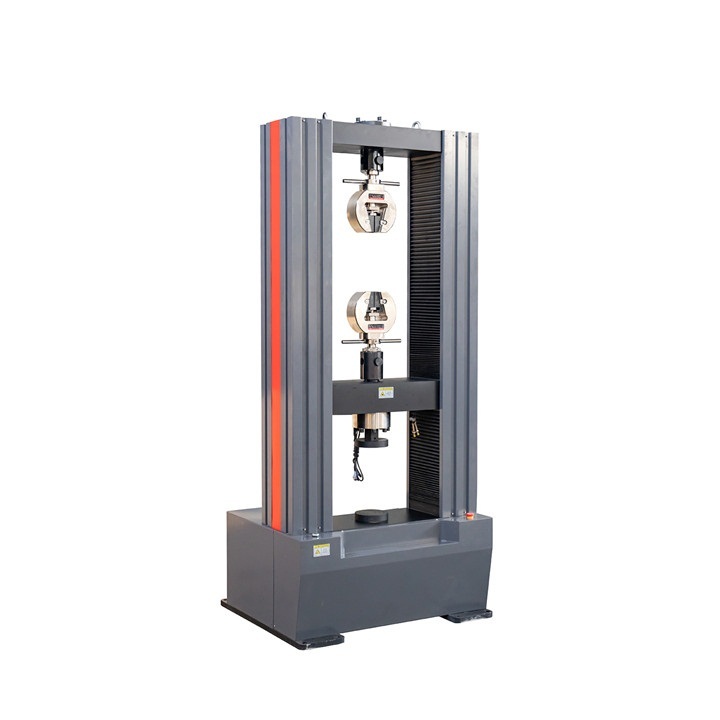Tensile testing equipment plays a crucial role in materials testing by evaluating the strength and lifespan of diverse materials. Utilising a set of controlled tensile forces on samples, these machines enable engineers, researchers, and manufacturers to determine how materials react to stress. Nevertheless, when it comes to deciding on the best manufacturer for Tensile testing machine manufacture. It is vital to choose a manufacturer. This is an important choice because it will affect the accuracy, dependability, as well as efficiency of your testing operations. Here, they will consider these and several other typical mistakes to avoid when choosing a manufacturer of tensile testing machines, so you can find one that satisfies your particular requirements and preferences.
1. Ignoring Experience and Reputation
When selecting a manufacturer of tensile testing machines, one of the most frequent errors made is neglecting to take into account their standing and background in the field. Given the likelihood, it is more likely that a reputable manufacturer who has built a positive reputation over the years is likely to offer good quality products, reliable customer service, and responsive after-sales services. Select a manufacturer that has been in the industry for many years; the longer the experience, the more likely they are devoted to their clients’ quality.
2. Failing to Adhere to Industry Standards
Many industry standards and laws that guarantee the precision and uniformity of test results apply to tensile testing equipment. If you don’t choose a manufacturer who follows these guidelines, your testing procedures may not be as reliable. Seek out producers who adhere to pertinent standards, based on your sector as well as geographical position. Adhering to these guidelines not only makes your test results more credible, but it also makes working with other organizations and government agencies easier.
3. Disregarding customer service and support
Tensile testing apparatuses are intricate and sophisticated pieces of machinery that might need routine upkeep, troubleshooting, or software upgrades. Ignoring the value of customer service and support can result in expensive downtime and possibly even data loss. Select a manufacturer who provides thorough customer support, including quick response times, training materials, as well as technical help. To guarantee continuous operations, find out more about their policies regarding servicing and maintenance as well as the availability of consumables and spare parts.
4. Not Taking Future Scalability Into Account
As your testing requirements change, you might need more features or enhanced load capacities from the apparatus used for tensile testing. If you don’t account for future scalability, you may have to replace your equipment sooner than expected, which will cost you extra money and cause inconvenience. Consider the manufacturer’s product line and ask about future updates along with modular expansions when making your choice. This guarantees that your investment will continue to be applicable and flexible in response to your evolving needs.
5. Neglecting Integration Potential
The ability to integrate tensile testing machines with other software and systems is essential for optimizing workflows and increasing efficiency in today’s data-driven world. Neglecting integration capabilities can result in ineffective procedures, manual data entry, as well as data silos. Think about suppliers who provide smooth integration with LIMSs (laboratory information management systems) or other pertinent software platforms. This integration makes it possible for data to be exchanged seamlessly, improves data integrity, and makes thorough analysis and reporting easier.
6. Ignoring Sample Handling and Preparation
For tensile testing results that are precise and trustworthy, samples must be handled and prepared correctly. The quality of your test data may be jeopardized if you neglect to take into account a manufacturer’s proficiency and capabilities in this field. Seek out producers who provide complete sample preparation solutions, such as gripping, cutting, as well as alignment tools. Ask them about their experience with different kinds of materials as well, since different materials might need different kinds of preparation.
7. Ignoring the Capabilities for Environmental Control
Temperature, humidity, and atmospheric conditions are examples of environmental variables that can have a big impact on how materials behave during tensile testing. A tensile testing machine manufacturer’s environmental control capabilities can be neglected. Result in erratic or erroneous test findings. Examine the manufacturer’s products about humidity control mechanisms, temperature control systems, along environmental chambers. The reliability and reproducibility of your test data are improved by these features, which guarantee that your testing conditions are precisely replicated and controlled.
8. Disregarding Data Management and Software Features
The software and data management features provided by a manufacturer of tensile testing machines are essential in the current era of data-driven testing. Disregarding these factors may lead to ineffective data processing, restricted analytical possibilities, and possibly weakened data integrity. Give top priority to vendors who offer secure data backup and storage options, reliable data acquisition and analysis tools, in addition to user-friendly software interfaces. These functions simplify your testing procedures while also enabling thorough data analysis and reporting.
9. Ignoring Technical Support and Training
Tensile testing apparatuses are highly developed machineries that must be accurately used and with access and quality technical assistance to provide precise results. Unfortunately, Failing to consider the level and quality of assistance available along with training compromises productivity and increases downtime while also risking errors in testing. Select a manufacturer who provides extensive training programs, such as remote or on-site training options, along with easily accessible technical support resources, like manuals, knowledge bases, and specialised support staff.
10. Not Taking Ownership Total Cost Into Account
Instead of focusing only on the cost of the initial purchase, it is necessary to consider the total cost of ownership when selecting a manufacturer of tensile testing machines .Plus for the buying manufacturer for tensile testing machines. Disregarding upkeep prices, replacement parts, and upgrades as well Potential downtime may produce additional unforeseen expenses and financial stress. From a more general perspective, it is important to include not only the purchase price but long-term costs of ownership that accompany the purchase such as maintenance contracts and potential replacements or upgrades throughout the equipment lifetime, hence integrating the complete cost of ownership
Conclusion
Choosing the appropriate Hydraulic universal testing machine manufacturer is a critical decision that has a direct effect on the efficiency, accuracy, and reliability of a test.This article describes the errors you could make; however, if you follow the advice here, you can make an informed decision that meets your distinct needs.Reputation, adherence to industry standards, customer service, scalability, integration potential, proficiency in sample preparation, environmental control, software and data management features, training and technical support, along with total cost of ownership should all be given top priority.















+ There are no comments
Add yours